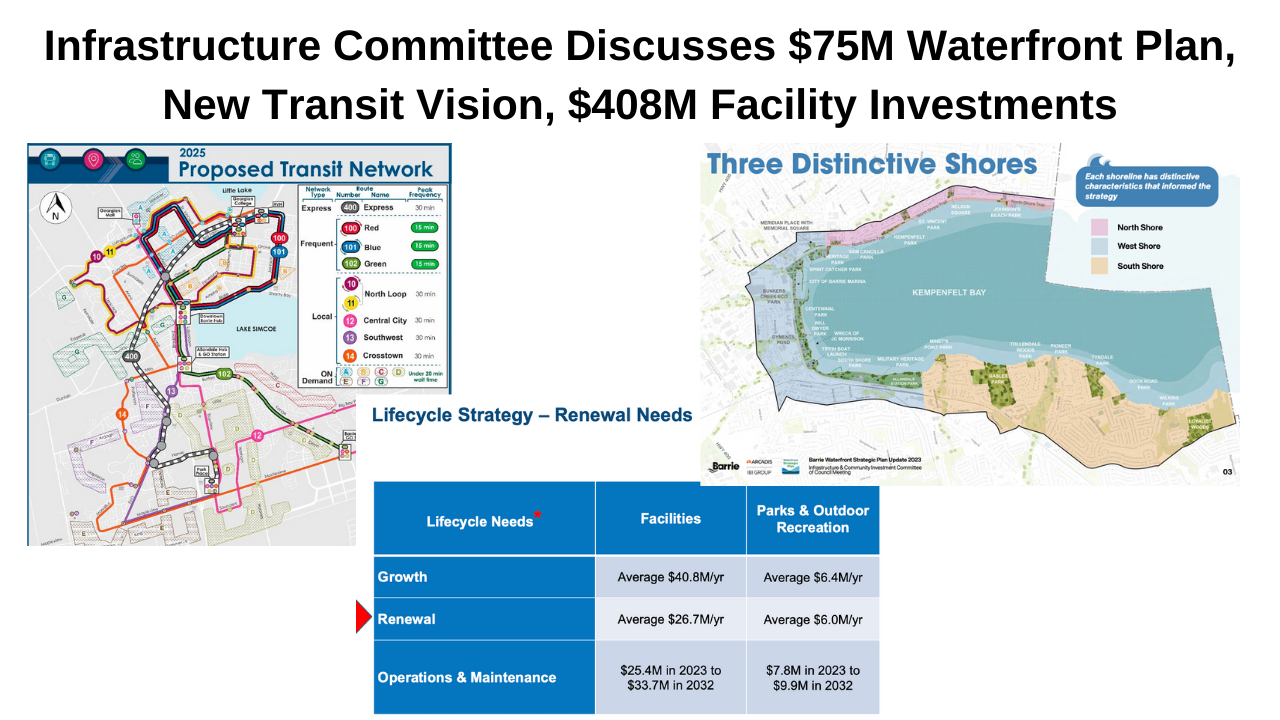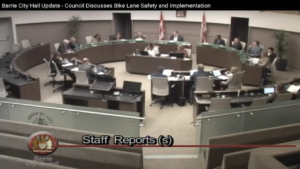During the Infrastructure and Community Investment Committee meeting held on May 31 at Barrie City Hall, three key presentations were delivered.
First,
Consultants from the IBI and Arcadis group presented an update to the Barrie Waterfront Strategic Plan. Three primary objectives were highlighted: enhancing access to waterfront parks and trails, effectively managing waterfront use and vehicular demand, and championing climate adaptability alongside environmental protection.
A total investment of $21M is designated for short-term projects scheduled between 2024 and 2028. For the medium term, from 2029 to 2033, an allocation of $24.3M has been set. Lastly, long-term developments set for 2034 and beyond will receive $29.8M. These investments are in sync with the evolving needs of the City of Barrie.
Second, Dennis Kar partner at Dillon Consulting presented the TRANSIT’S NEW NETWORK VISION. The update was triggered primarily by the need to adjust the transit network for the new Allandale mobility hub, changes in post-pandemic travel behaviors, and the success of Barrie’s transit-on-demand services pilot.
If the Council adopt the new 2025 network, a two-phase implementation is proposed. Phase one, in 2024, includes the introduction of the express route network, expansion of certain transit-on-demand zones, and improvements to specific fixed-route services. Phase two, in 2025, will finalize most proposed modifications.
Finally, the City staff discussed asset management for city’s over $7 billion worth of assets. The assets not yet covered in previous plans total over $1.5 billion and include facilities and parks.
To accommodate population growth, the city plans to invest $408 million in new facilities over the next decade. Maintaining current service levels for outdoor recreation facilities will require an additional $26 million investment in new assets over the same period.
However, a $3.3 million annual gap exists between planned expenditures and the necessary renewals for parks and outdoor recreation. In addition, operating budgets will increase from $25 million to nearly $34 million by 2032 due to new and expanded assets.



